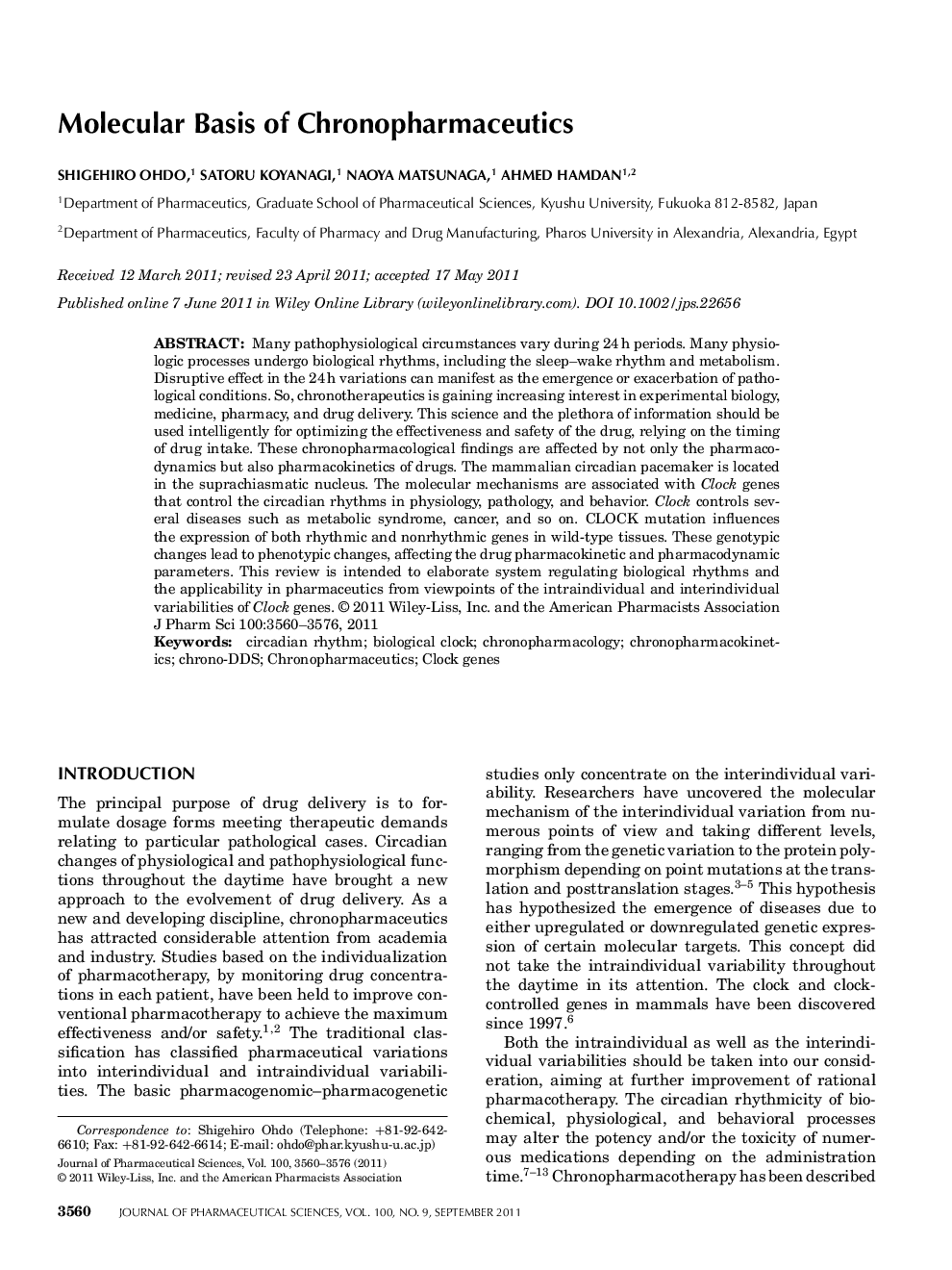| Article ID | Journal | Published Year | Pages | File Type |
|---|---|---|---|---|
| 2485469 | Journal of Pharmaceutical Sciences | 2011 | 17 Pages |
Many pathophysiological circumstances vary during 24 h periods. Many physiologic processes undergo biological rhythms, including the sleep–wake rhythm and metabolism. Disruptive effect in the 24 h variations can manifest as the emergence or exacerbation of pathological conditions. So, chronotherapeutics is gaining increasing interest in experimental biology, medicine, pharmacy, and drug delivery. This science and the plethora of information should be used intelligently for optimizing the effectiveness and safety of the drug, relying on the timing of drug intake. These chronopharmacological findings are affected by not only the pharmacodynamics but also pharmacokinetics of drugs. The mammalian circadian pacemaker is located in the suprachiasmatic nucleus. The molecular mechanisms are associated with Clockgenes that control the circadian rhythms in physiology, pathology, and behavior. Clockcontrols several diseases such as metabolic syndrome, cancer, and so on. CLOCK mutation influences the expression of both rhythmic and nonrhythmic genes in wild-type tissues. These genotypic changes lead to phenotypic changes, affecting the drug pharmacokinetic and pharmacodynamic parameters. This review is intended to elaborate system regulating biological rhythms and the applicability in pharmaceutics from viewpoints of the intraindividual and interindividual variabilities of Clockgenes. © 2011 Wiley-Liss, Inc. and the American Pharmacists Association J Pharm Sci 100:3560–3576, 2011
